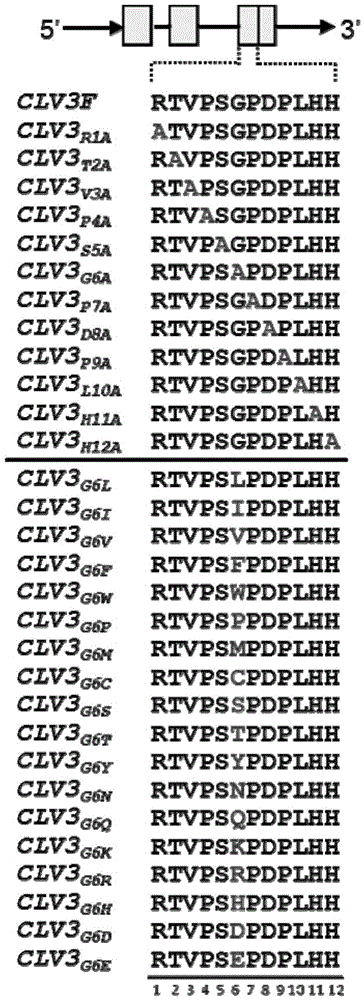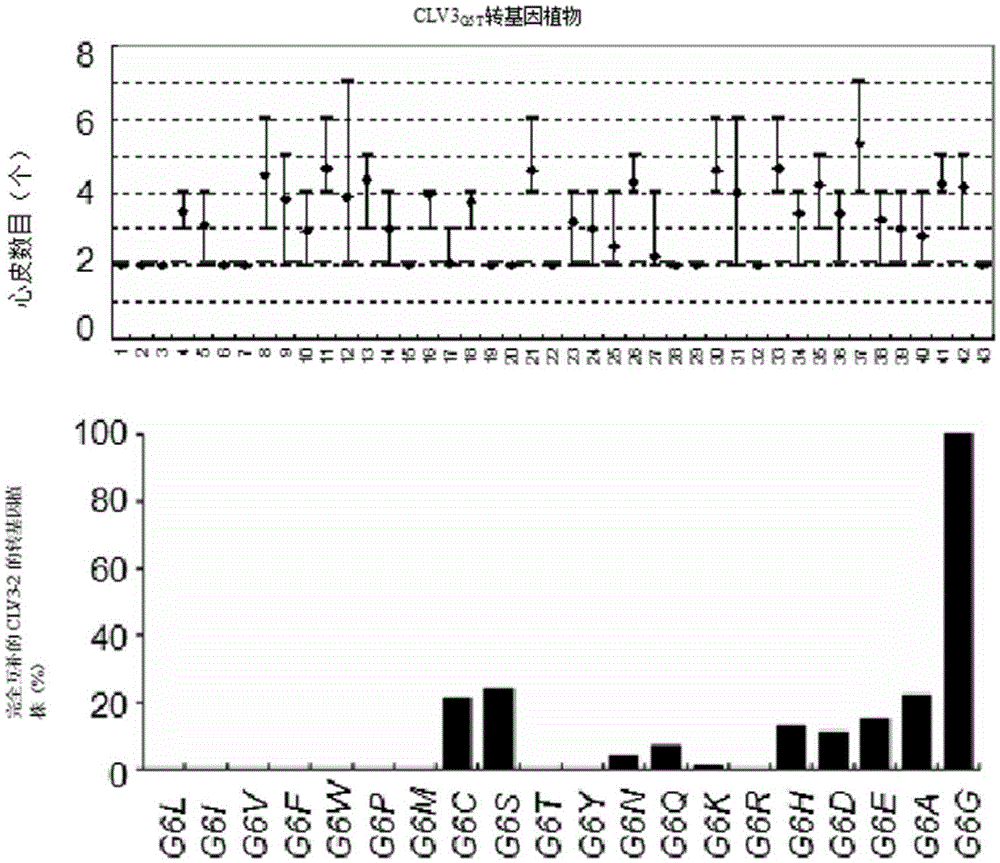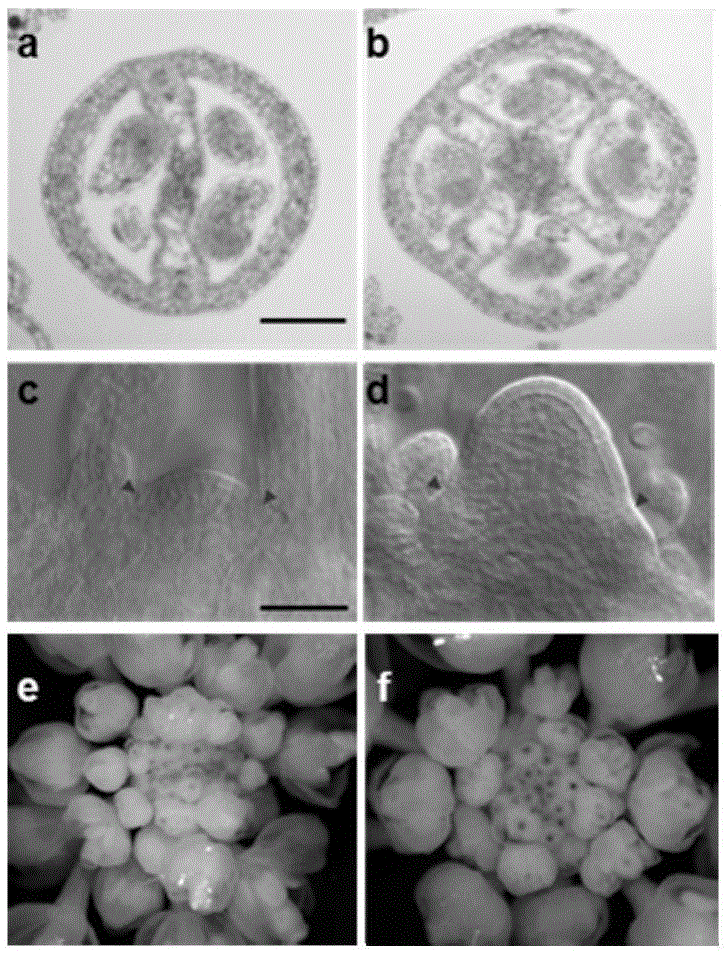A method for interfering with plant endogenous cle family polypeptide hormones and antagonistic polypeptides of small molecule polypeptide hormones
A technology for small molecule polypeptides and polypeptide hormones, which is applied in the field of genetic engineering and can solve problems such as functional research, functional redundancy, and difficulty in separating and detecting polypeptide hormones.
- Summary
- Abstract
- Description
- Claims
- Application Information
AI Technical Summary
Problems solved by technology
Method used
Image
Examples
Embodiment 1
[0031] 1. One-dimensional alanine scanning of 12 amino acids of CLV3 polypeptide hormone
[0032] By designing primers and PCR, a point mutation is introduced into the CLE domain of the polypeptide hormone coding region of the CLV3 gene (sequence: N-RTVPSGPDPLHH-C), and the 12 amino acids in the polypeptide region are alanine (Alanine, A). Replacement, the PCR product (including 1857 bp before the start codon ATG at the 5' end and 1518 bp regulatory sequence and 559 bp of the genome sequence after the stop codon TGA at the 3' end, the nucleotide sequence of which is shown in SEQIDNo.1:) was cloned into pDONR221 Vector, and then subcloned into the pBGWFS7 destination vector, and the construction was named CLV3 in turn R1A ,CLV3 T2A ,CLV3 V3A ,CLV3 P4A ,CLV3 S5A ,CLV3 G6A ,CLV3 P7A ,CLV3 D8A ,CLV3 P9A ,CLV3 L10A ,CLV3 H11A and CLV3 H12A ( figure 1 ). These constructs were transformed into wild-type Arabidopsis thaliana by the method of Agrobacterium transformation c...
PUM
 Login to View More
Login to View More Abstract
Description
Claims
Application Information
 Login to View More
Login to View More - Generate Ideas
- Intellectual Property
- Life Sciences
- Materials
- Tech Scout
- Unparalleled Data Quality
- Higher Quality Content
- 60% Fewer Hallucinations
Browse by: Latest US Patents, China's latest patents, Technical Efficacy Thesaurus, Application Domain, Technology Topic, Popular Technical Reports.
© 2025 PatSnap. All rights reserved.Legal|Privacy policy|Modern Slavery Act Transparency Statement|Sitemap|About US| Contact US: help@patsnap.com



